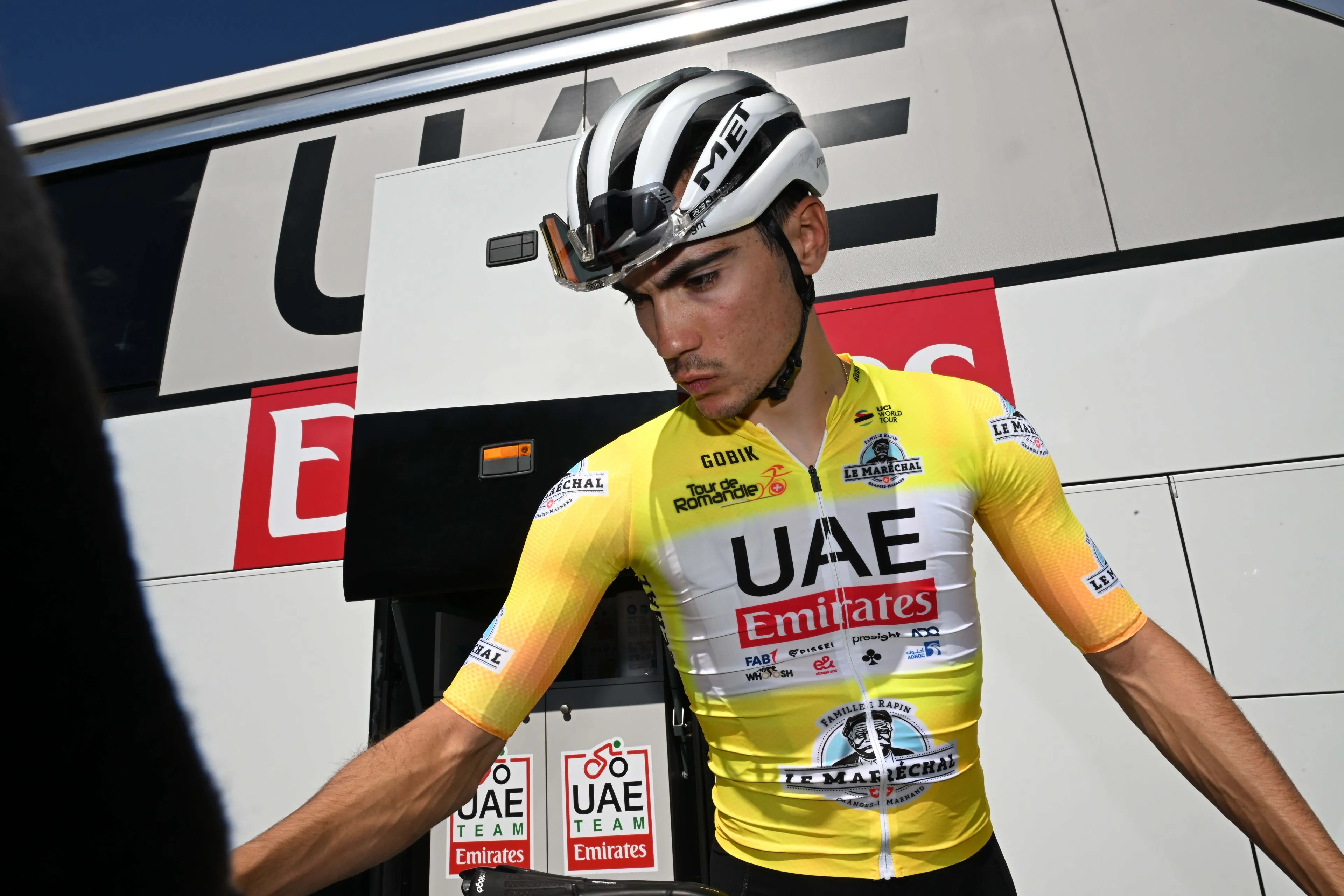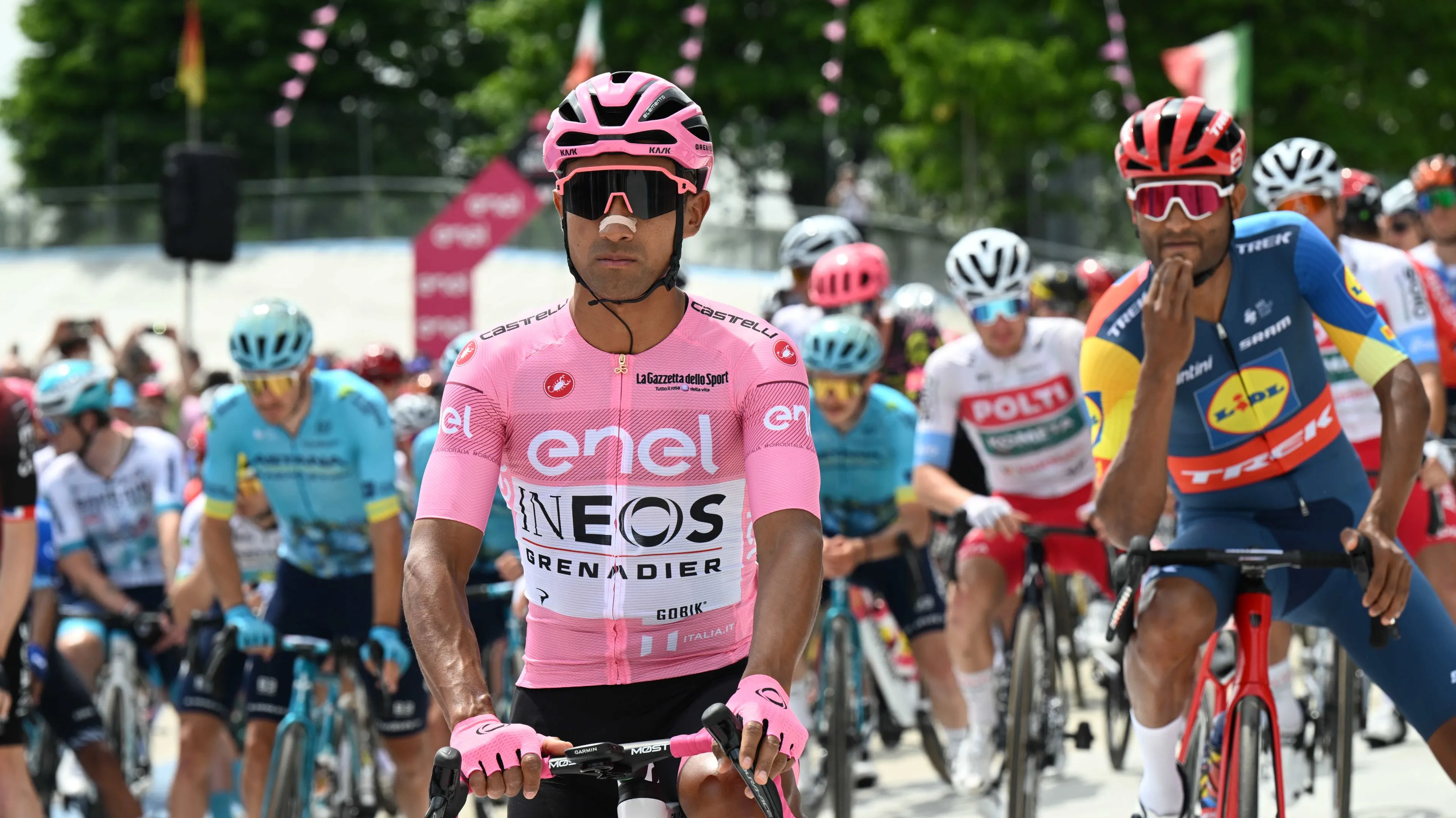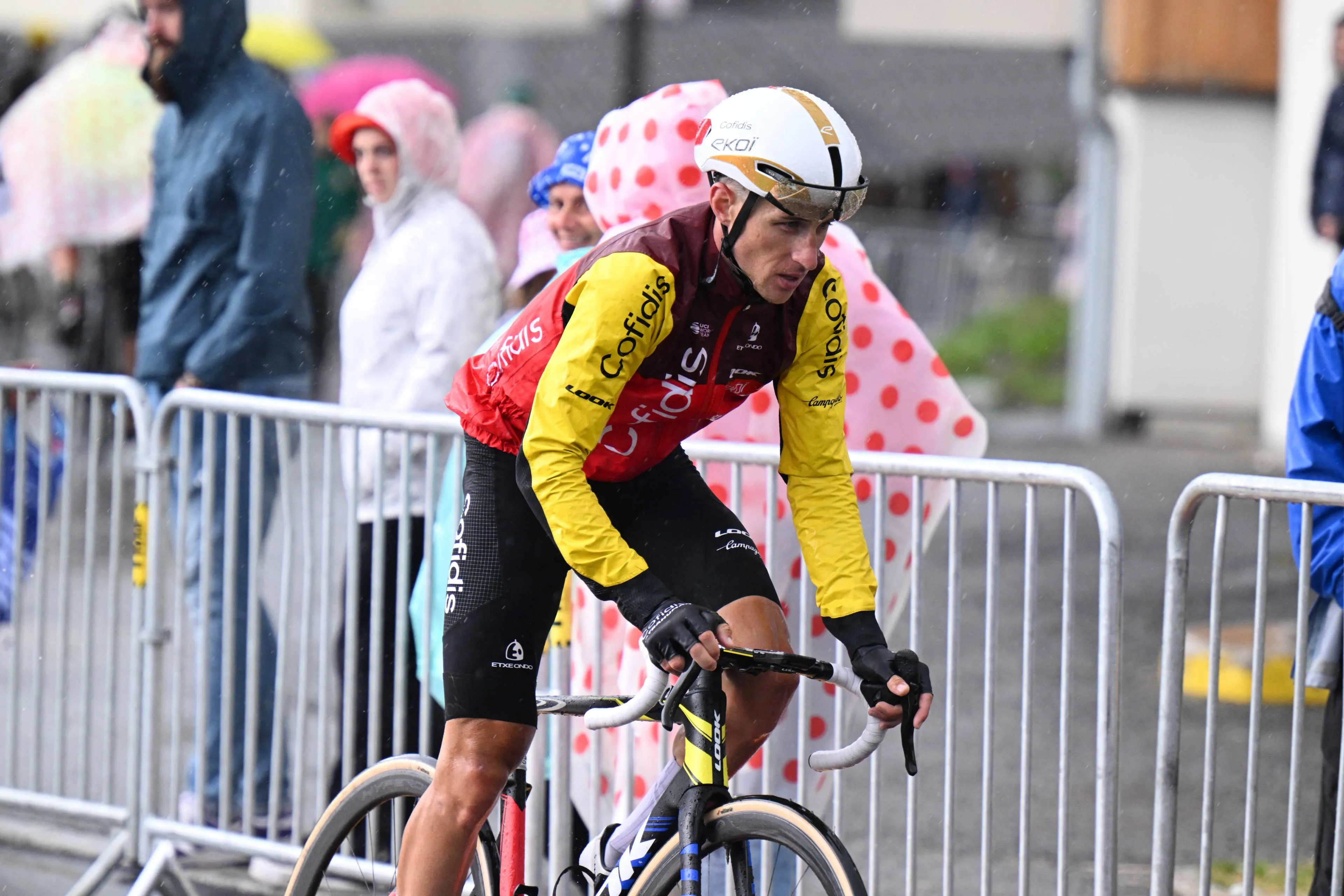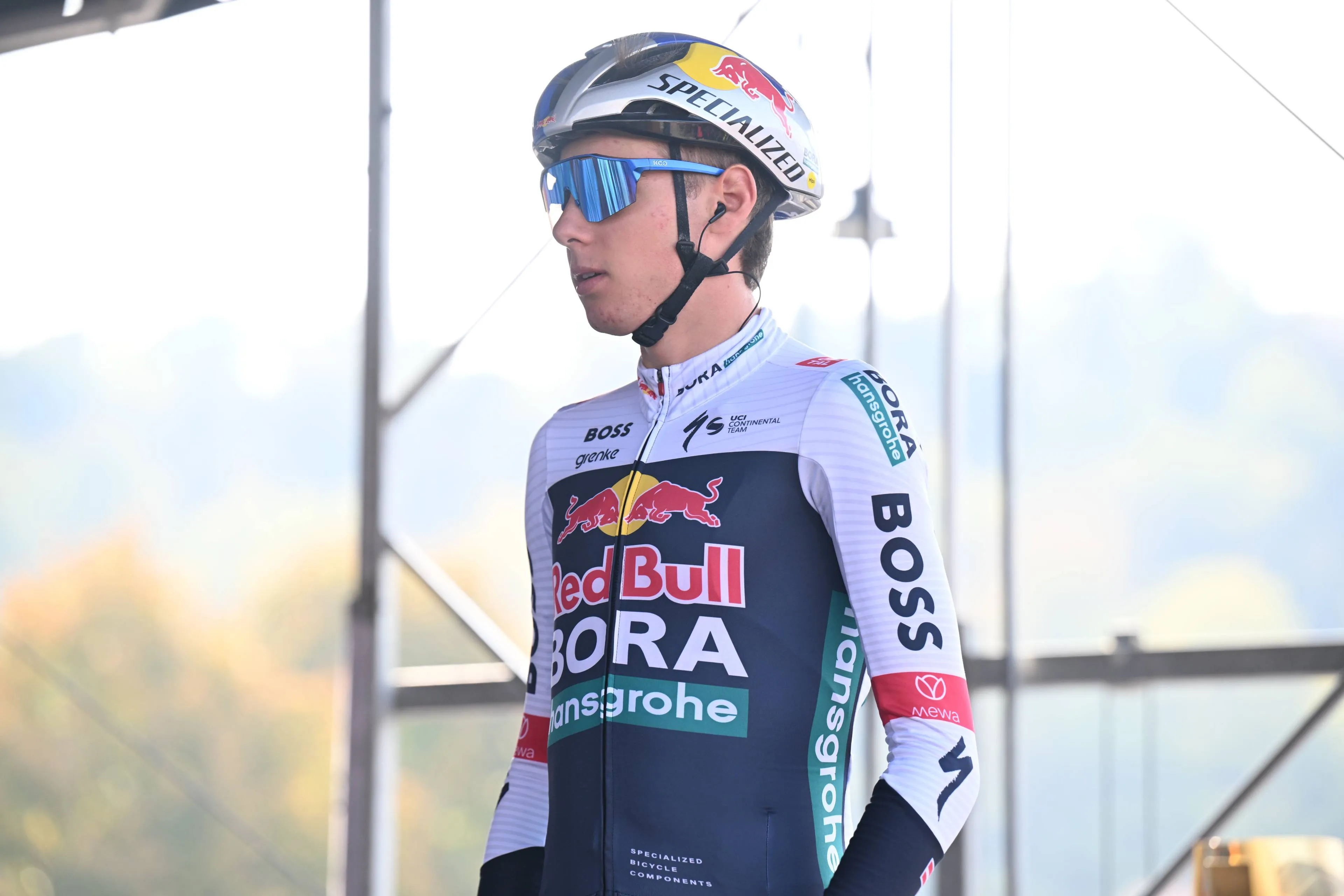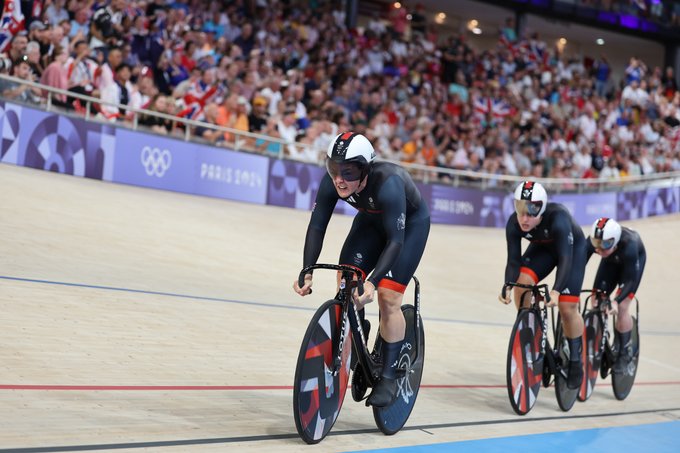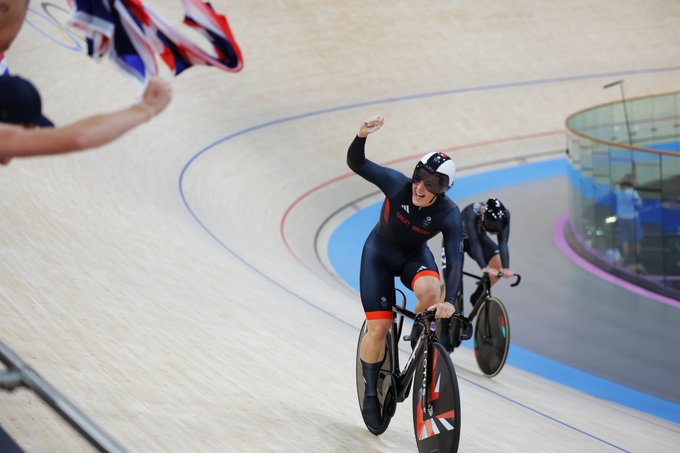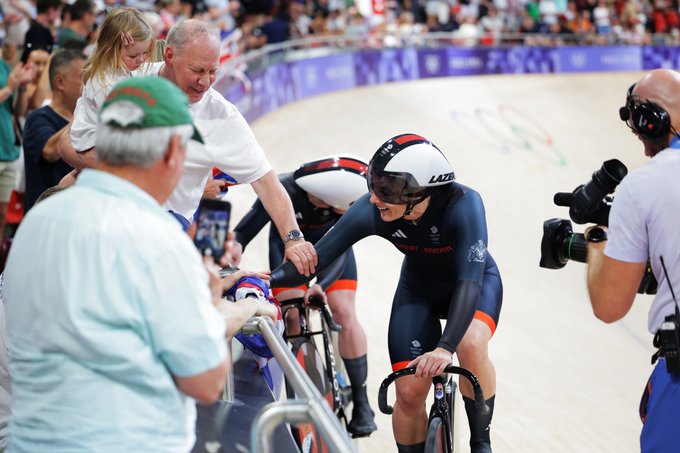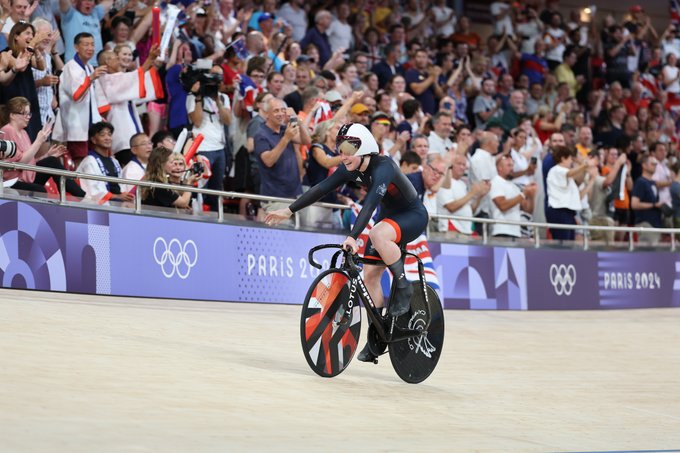Exploring Great Britain's Golden Era in Track Cycling
Track CyclingWednesday, 07 August 2024 at 22:00

In the realm of track cycling, few stories are as remarkable as the rise of Team GB. From being a relatively minor force to dominating the velodrome across the past four Olympics, the transformation of British cycling has been remarkable. Both the men's and women's teams have reached unprecedented heights, consistently topping the medal tables and setting world records across the sport.
Team GB’s gold medal in the women’s team sprint was the only event the nation had yet to win. Track cycling, Team GB has completed it. But how did Team GB become the most dominant force in track cycling? Let’s delve into the journey of Team GB, exploring the key factors behind their success and the pivotal moments that have defined their golden era.
History
Before the turn of the millennium, British cycling was far from the powerhouse it is today. The sport struggled with limited funding, outdated facilities, and a lack of competitive success on the international stage. The last significant achievement was the gold medal won by Chris Boardman in the 1992 Barcelona Olympics in the individual pursuit. However, this success was an outlier rather than the norm.
The early 2000s marked a significant turning point for British cycling. A strategic overhaul led by key figures such as Sir Dave Brailsford and Shane Sutton transformed the landscape of the sport. Sir Dave Brailsford, who became the Performance Director of British Cycling in 2003, introduced the concept of 'marginal gains.' This philosophy focused on making small, incremental improvements in every aspect of performance. This ranged from equipment to nutrition, training techniques, and even the design of the ever-aerodynamic cycling suits.
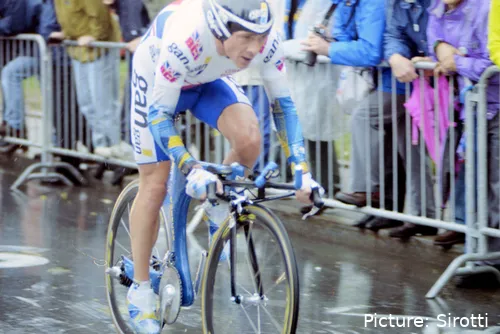
Chris Boardman in 1996. @Sirotti
But without the funding, there would not have been the room for such vast improvements. Step forward the National Lottery, whose increased funding played a crucial role in this transformation. With more resources at their disposal, British Cycling was able to invest in state-of-the-art facilities, cutting-edge technology, and a more robust support system for athletes.
The establishment of world-class training facilities, such as the Manchester Velodrome, provided a dedicated environment for British cyclists to hone their skills. These facilities were equipped with the latest technology, allowing for detailed analysis and continuous improvement.
British Cycling also focused on talent identification and development programs. Promising young cyclists were nurtured through structured pathways, ensuring a steady stream of elite athletes ready to compete at the highest level. The Junior Academy and Olympic Development Program became crucial in developing future stars. The 2004 Athens Olympics marked the beginning of Team GB's rise in track cycling. The team won two gold medals, one silver, and one bronze, signaling their arrival on the global stage. But when London was confirmed as the host of the 2012 games in 2005, Team GB’s cycling set up stepped it up again.
Read also
Beijing 2008 was seen as something of a London 2012 warmup for the British Team, but it was the watershed moment for British cycling. GB won an astounding seven out of ten gold medals in track events, with standout performances from Chris Hoy, Victoria Pendleton, and Bradley Wiggins. In fact, many of British most successful road cyclists won track medals with Team GB, including Tour de France stage victory record holder Mark Cavendish, and overall winners Geraint Thomas and Wiggins.
Next up: London. The home games, and Team GB were now stacked fulling of cycling mega stars. Fresh off the back of Bradley Wiggins winning Britain’s first ever Tour de France, Team GB dominated the track cycling at the London 2012 games, where the team once again topped the medal table, winning seven gold medals.
One of the key factors of Team GB’s rise came through their women’s team. Victoria Pendleton emerged as one of the most successful British female cyclists, winning gold in the individual sprint at the 2008 Beijing Olympics and the keirin at the 2012 London Olympics. Her success inspired a new generation of female cyclists. Similarly, Laura Kenny became a household name with her stellar performances in the 2012, 2016, and 2020. Her prowess in the omnium and team pursuit events helped secure five gold medals, establishing her as one of the most decorated female cyclists in Olympic history.

Laura Kenny and Katie Archibald at the 2021 Tokyo Olympics. @Sirotti
Innovation
A key element of Team GB's success has been their relentless pursuit of innovation. The use of cutting-edge technology has given British cyclists a competitive edge, including the Hope-Lotus track bike, skin suit designed by KALAs, and a new wind tunnel in Manchester. The collaboration with experts from various fields, including engineering and sports science, has resulted in equipment and training methods that are at the forefront of the sport.
The introduction of custom-made bikes, optimized for each athlete's unique physiology, has contributed significantly to their success. Attention to detail, such as the design of the cycling suits to reduce drag and improve aerodynamics, has also played a crucial role. Behind every successful athlete is a team of dedicated coaches and support staff. Team GB's coaching staff, led by Brailsford and Sutton, have been instrumental in developing strategies and training programs tailored to the needs of each cyclist. The support system includes nutritionists, psychologists, physiotherapists, and data analysts who work together to ensure the athletes are in peak condition.

Team GB in the 2016 Rio de Janeiro Olympics. @Sirotti
But after the rise, how have Team GB managed to stay at the top? Maintaining success at the highest level is a formidable challenge. Team GB's ability to stay at the top is a testament to their continuous innovation and adaptation. The transition from Brailsford to Stephen Park as Performance Director has ensured that the team's philosophy of marginal gains and pursuit of excellence remains intact.
Whilst track cycling’s most decorated couple Jason and Laura Kenny dominated the sport for Team GB, their success could not last forever. The success of younger cyclists, such as Elinor Barker and Katie Archibald, in recent competitions indicates a bright future for Team GB. Now, there’s a new crop of talents coming through, as seen by Katy Marchant’s, Sophie Capewell, and Emma Finucane’s storming world record on the way to a gold medal in the team sprint on Monday.
The rise of Team GB in track cycling can be compared to the brilliant Jamaican sprinting dominance from 2008. From humble beginnings, the team has transformed into a dominant force in the sport, setting new standards and inspiring future generations. Their journey is a testament to what can be achieved with a clear strategy, investment in talent and infrastructure, and an unwavering commitment to excellence. The golden era of British track cycling is not just a chapter in the sport's history but a continuing saga of success and aspiration. The Paris competition is underway, and Team GB aren’t done yet.
Read also
claps 0visitors 0
Just in
Popular news
Latest comments
- Completly agree, Jan was in front of van gils, following Pidcock wheel, it was Van gils who tried to force his way through Jan and the barriers. Are they blaming Jan because he belongs to the richest team that win a lot?
 maria2024202418-02-2026
maria2024202418-02-2026 - Clickbait title, not reality-based. Yawn.itsent18-02-2026
- lame, but probably correctantipodeanpedalfan18-02-2026
- Van Gils rode like wanted to get crashed or way too over confident that he was going to overtake Jan before getting pinched. It was obvious were Jan was going/had to go and MVG had the whole road to give an inch so he would have a chance to overtake on the rightjad2918-02-2026
- Double book this showing with the Melania documentary and you might get 100 people to see it...total !frieders318-02-2026
- Simple solution...stay off the barriers since you might get closed out ! Christen's sprint was legal as he was trying to get into the slipstream of Pidcock.frieders318-02-2026
- I believe Remco now understands that he will have issues reaching the top step as long as Tadej is in the Tour, whiles he's a year junior to Tadej he has had his upper body rebuilt twice now from crashes over the last few years. I think he has a chance to win the Tour in a few more seasons, you can only prepare yourself as best you can and try. He said he needs to race some more one week stage races, he should, he can probably win them all. I also believe Remco should aim for another Vuelta if he comes out of the Tour in good form and maybe he should think about the Giro again for next season. This is potentially Tadej's fifth Tour win coming up this year, no one is going to derail that unless he falls off the bike or gets really sick.awp17-02-2026
- Not only will the great narcissist get his voice, but he'll benefit financially from this as well. Who says that cheating and lying your way to victory doesn't pay?
 santiagobenites17-02-2026
santiagobenites17-02-2026 - It'll make a good double feature with the Michael Jackson soft focus biopic.LumbarDeniro17-02-2026
- Yeah, whilst MVDP would never break a bone on the MTB... 😂Sexass17-02-2026
Loading
🥇🇬🇧 Team Great Britain 🇬🇧🥇 Women's Team Sprint Olympic Champions 🔥 #CyclingTrack #Cycling #Paris2024
Write a comment

